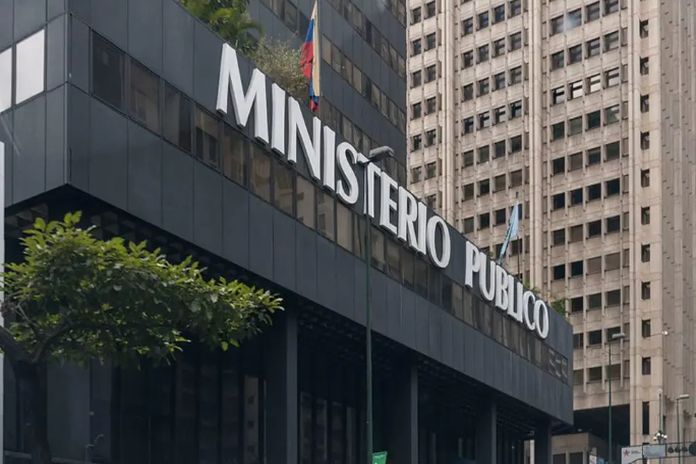By Andreína Chávez Alava
CARACAS, (venezuelanalysis.com) – Venezuelan attorney-general Tarek William Saab announced two arrests over an alleged thwarted plan to revive violent street protests orchestrated by María Corina Machado’s far-right political organization.
“This was meant to be similar to the 2014 and 2017 ‘guarimbas’ [violent protests]. They intended to attack military installations, use labor unions and students to promote street actions and encourage a military wing to attack the country’s energy companies,” claimed Saab during a press conference on Wednesday.
Far-right opposition groups organized the 2014 and 2017 violent street actions, known as guarimbas, in efforts to overthrow the Maduro government. The events lasted for several months, resulting in nearly 200 people killed and dozens injured.
Saab said security forces had arrested Henry Alviárez and Dignora Hernández, national coordinator and political secretary of Machado’s Vente Venezuela party, respectively. Authorities have also issued seven arrest warrants against other members of the organization for their alleged involvement in the violent plot.
The attorney-general stated that the foiled scheme was revealed by the Vente Venezuela coordinator in western Barinas state, Emill Brandt Ulloa, who had been previously detained for inciting confrontations with police officers during a teachers’ rally. The action resulted in four female officers being attacked.
In a video presented by Saab to the press, Brandt said he was approached by members of Vente Venezuela on December 6 and received instructions for destabilization actions that would begin in Barinas and later spread to the rest of the country. In 2022, an opposition politician won the Barinas governorship, marking a significant defeat for the United Socialist Party (PSUV) that had ruled Hugo Chávez’s birthplace for over two decades.
The detained operator detailed a two-stage plan that involved violent protests on January 15 and 23 and February 12 such as burning tires and public buildings to trigger confrontations with state security forces. The second stage would involve military officers in exile crossing the Colombian border to attack Venezuelan military bases. These actions were allegedly organized by far-right politicians Julio Borges and Antonio Ledezma, who are currently abroad fleeing charges.
“This would go hand in hand with a media campaign with the sole purpose of creating pressure for the national government to lift Maria Corina’s political ban,” said Brandt in the video.
Furthermore, he revealed that the violent activities were financed by foreign NGOs and admitted to receiving US $18.000 from Vente Venezuela for his collaboration.
“Let’s see what those NGOs paid by USAID will say. If they’ll say these [arrests] are forced disappearances. This is not what human rights were born for […] they cannot be used as a shield to make propaganda against the Venezuelan State,” concluded the attorney general.
In January, Venezuelan authorities announced they had dismantled five terrorist plots since May 2023 to sow violence and assassinate President Nicolás Maduro. Caracas shut down the local office of the United Nations High Commissioner for Human Rights (OHCHR) for interfering in the legal procedures. Over 30 people have been arrested, among them longtime NGO operator Rocío San Miguel.
For her part, Vente Venezuela leader María Corina Machado rejected the arrest of her team members and vowed she would not be “isolated.” She added that she led a “struggle of good versus evil” and called on international backers to take actions against the Maduro government.
On January 26, the Venezuelan Supreme Court ratified Machado’s 15-year ban from holding public office, pointing to her alleged participation in corruption schemes headed by former self-proclaimed “Interim President” Juan Guaidó, as well as support for US-led sanctions and actions endangering Venezuelan foreign assets.
Machado has insisted that her victory in the October 2023 controversial opposition primary contest earned her the candidacy and has refused to consider endorsing an alternative candidate. The opposition Unitary Platform, which has been engaged in talks with the Maduro government, has also maintained that banning Machado violates the Barbados Agreement.
However, the Venezuelan government has stated that the accords did not provide carte blanche since they specify that presidential hopefuls could run provided they do not break the law or violate the Venezuelan Constitution.
On Thursday, the National Electoral Council (CNE) opened the registration process and a total of 34 political parties will have until March 25 to present their candidates for the July 28 presidential election. Moderate opposition politicians have begun registering while the hardline sector has yet to announce its strategy.






